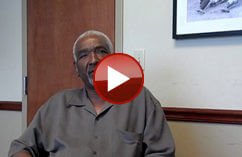Bradley County Nursing Home Abuse Lawyer
After working for many years to support themselves and their families, the elderly deserve the dignity and respect that should be given to all senior citizens. Unfortunately, the nursing homes and senior facilities that may people rely upon can often mistreat or outright abuse residents.
Nursing home abuse has become more common over the past few years, but injured people do have rights. Not only is nursing home abuse illegal under Tennessee criminal law, but the victims also have the right to pursue a civil suit for damages. Bradley nursing home abuse lawyers can help represent the residents of nursing homes and their families in civil suits. Speak with a compassionate personal injury attorney if you are alleging negligence or intentional abuse and are hoping to obtain the fair compensation that they deserve.
Tennessee Nursing Home Abuse Laws
Tennessee has recognized the epidemic of nursing home abuses throughout the state and has passed a number of laws protecting residents in these group homes. The most important of these is the Nursing Home Resident Bill of Rights in TN Code 68-11-901.
This guarantee the rights of all residents to:
- Privacy during treatment and care
- To visit with friends and family members
- To communicate via telephone
- To be free from detention against their will
- To be free from willful abuse or neglect, among other rights
A violation by the nursing facility of any of these rights will open an investigation and potential criminal charges to be pursued by law enforcement. However, any criminal investigation will not result in compensation for the resident. For this, the resident and their Bradley nursing home abuse lawyer must initiate a civil suit alleging negligence against either the worker or the facility itself.
How to Begin Proving Negligence
Any suit alleging negligence must contain five separate parts, or elements. These building blocks are prescribed by Tennessee’s courts and if one of these elements is not present, a plaintiff cannot win their case. These elements are duty, breach, cause, scope, and damages. The alleged abuser must have a legal duty to protect the resident, and in failing that duty, caused the resident to come to harm. Here, an intersection of the patient bill of rights and negligence comes into play.
If the plaintiff in a negligence case can show that the defendant’s actions violated the law, the defendant will be considered negligent per se. This means that the defendant is considered negligent by operation of the law, and the plaintiff does not need to prove negligence on their own. If a resident is held in their room, despite voicing a desire to move about the floor, the facility is violating the bill of rights. The facility may then be considered negligent per se, if the resident comes to harm.
Understanding the Statute of Limitations
One must also remember that there is a limited time after the alleged abuse for a person to file a claim in court. Known as the statute of limitations, this is a law passed by the Tennessee legislature that gives plaintiffs only one year from the date of personal injury to start a lawsuit. Time is of the essence in all cases so it is important for people to speak with a Bradley nursing home abuse lawyer as soon as possible.
Help from a Bradley Nursing Home Abuse Attorney
No one should be subjected to poor care or abuse, especially those who are the most vulnerable. Nursing home abuses have become fairly common in recent years. Not only is a negligent nurse or doctor to blame, but the facility as a business entity may also be responsible.
Bradley nursing home abuse attorneys can represent those seeking compensation for poor care or outright abuse. All residents of nursing homes have a bill of rights under Tennessee law. If you suspect that you or your loved ones have had these rights violated, contact a Bradley nursing home abuse lawyer. The attorney will fight by your side to file a complaint with the State and to get you the compensation that you deserve for your injuries.














